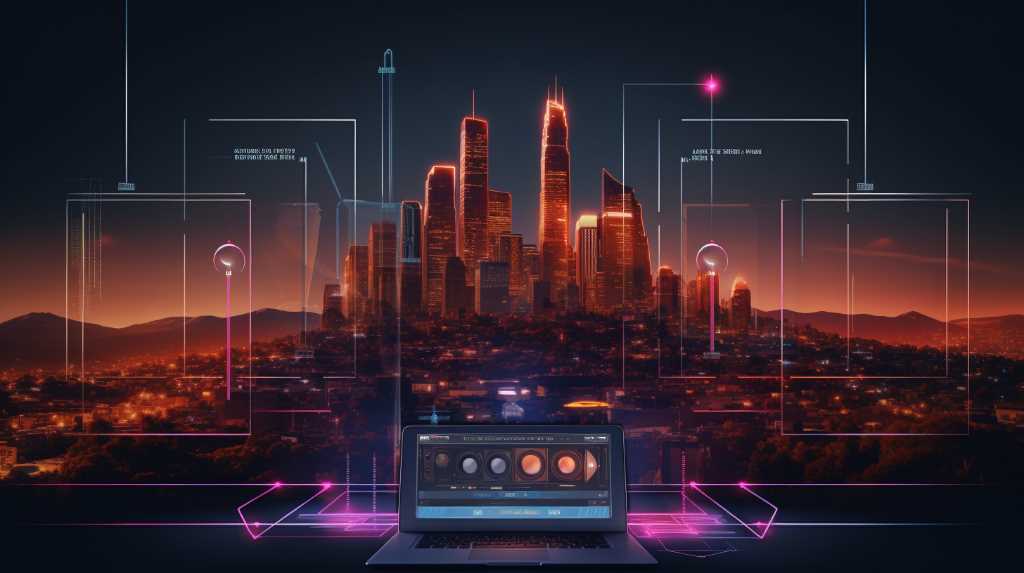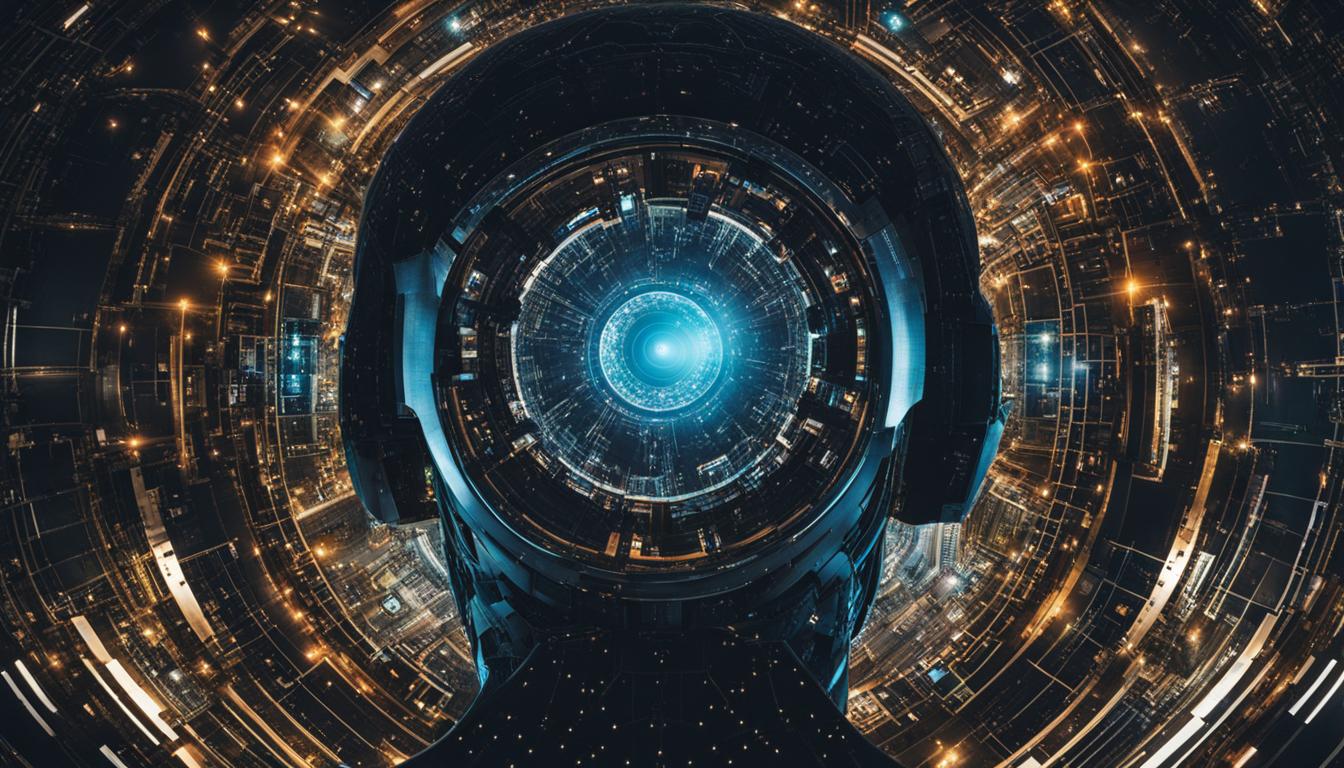In the constantly changing world of technology and job markets, the issue of which positions will be supplanted by AI is a significant concern. With ongoing developments in artificial intelligence reshaping sectors, grasping the subtleties of employment types vulnerable to automation is essential for both people and companies.
From the impact on traditional sectors to the emergence of new job opportunities, navigating the future of employment in the age of AI requires a strategic approach.
Stay tuned to uncover insightful perspectives and proactive strategies to navigate the changing job market dynamics in the face of AI integration.
Key Takeaways
- Routine tasks like data entry and customer service roles are at risk of being replaced by AI.
- Jobs involving repetitive tasks and basic decision-making are more susceptible to automation.
- Roles requiring creativity, complex problem-solving, and high human interaction are less likely to be replaced.
- Continuous skill development and blending technology with human skills are essential for navigating future job market changes.
Industries at Risk of Automation
In the imminent landscape of technological advancement, certain industries are poised at the brink of significant transformation through the integration of automation technologies. Market research analysts, customer service roles, and data entry positions are among the job roles facing potential disruption due to the increasing capabilities of AI technologies. Routine tasks such as data entry, which are repetitive and rule-based, are particularly susceptible to automation. AI tools like ChatGPT and 'Will Robots Take My Job' showcase the efficiency with which AI can handle tasks traditionally performed by humans, raising concerns about job replacement in sectors like transportation and sales.
The impact of AI automation on industries is not limited to task-oriented roles; it extends to roles requiring human interaction. Jobs that involve complex problem-solving skills and high levels of human interaction, such as those in management, healthcare, education, and construction, are less likely to be replaced by AI due to the unique cognitive abilities and emotional intelligence required in these fields. As AI technologies continue to advance, understanding the dynamics of job displacement and evolution in various sectors becomes crucial for workforce planning and adaptation.
Jobs AI Can Replace

With the rapid advancement of artificial intelligence technologies, the landscape of job roles vulnerable to replacement is becoming increasingly defined and consequential.
- Data Entry and Processing: AI's efficiency makes routine tasks like data entry and processing susceptible to replacement.
- Administrative Support Roles: Jobs involving administrative tasks, such as scheduling and basic decision-making, are at risk of being replaced by AI.
- Customer Service Representatives: AI-powered chatbots and virtual assistants are increasingly replacing human roles in customer service.
- Manual Labor and Assembly Line Workers: AI's precision and consistency make it a potential replacement for manual labor and assembly line tasks.
As AI continues to evolve, it poses a significant threat to jobs that primarily involve repetitive tasks and basic decision-making. Roles that rely heavily on human skills like interpersonal communication, complex problem-solving, and emotional intelligence are less likely to be replaced by AI. Understanding the skills that differentiate human workers from AI is crucial in navigating the changing job market landscape.
Jobs AI Cannot Replace
Certain job roles in today's workforce demonstrate a resilience to being replaced by artificial intelligence due to their strong reliance on human-centric skills and specialized expertise. Human Resource Managers, Sales Managers, Marketing Managers, Public Relations Managers, and Chief Executives fall into this category. These roles involve complex decision-making, strategic planning, and high levels of interpersonal interaction that are not easily replicated by AI.
Event Planners, Writers, Software Developers, Editors, and Graphic Designers also possess skills that are currently challenging for AI to emulate. The creativity, critical thinking, and emotional intelligence required in these positions make them less susceptible to automation.
Marketing Managers and Public Relations Managers rely heavily on human touch and expertise, which are pivotal in navigating nuanced human interactions. Furthermore, the blend of human creativity with technological advancements in Graphic Designers and Software Developers makes them less vulnerable to AI replacement, highlighting the significance of unique human skills in these professions.
Impact of AI on Workforce

The increasing integration of artificial intelligence into various industries is set to reshape the workforce landscape significantly, particularly in terms of job roles that are susceptible to automation.
Impact of AI on Workforce:
- Frey and Osborne predict 47% of U.S. jobs could be replaced by AI in the next 10-20 years.
- Sectors like transportation, administrative, production, and service industries are highly susceptible to AI job replacement.
- Routine tasks like data entry and assembly line work are vulnerable to AI automation.
- AI excels in efficiency, completing tasks faster and more accurately than humans, especially in routine and repetitive tasks.
As AI technology advances, jobs that involve repetitive, predictable tasks are most likely to be replaced. Roles demanding creativity, empathy, and complex decision-making are currently safer from AI replacement. Understanding the impact of AI on the workforce is crucial for individuals and industries to adapt to the changing job market landscape effectively.
Strategies for Job Market Changes
Navigating the evolving job market requires a proactive approach to implementing strategies that leverage technological advancements and foster continuous skill development for sustainable career growth. In today's dynamic job market landscape, staying abreast of technological advancements is crucial for remaining competitive. Embracing AI tools can significantly enhance efficiency and productivity in various roles. AI can aid in summarizing complex information, streamlining workflow processes, and improving overall performance.
Engaging in skill development through virtual job simulations is essential to adapt to changing job requirements. These simulations provide a platform to practice new skills, test different scenarios, and enhance problem-solving abilities. To thrive in the evolving job market, it is imperative to blend the human touch with technological advancements. This fusion can lead to effective career growth strategies that capitalize on the strengths of both human workers and AI technologies. By embracing these strategies, individuals can proactively position themselves for success in the future employment landscape.
Frequently Asked Questions
Which Job Will Be Replaced by Ai?
In the imminent future, AI is poised to replace jobs that involve routine tasks, such as data entry and assembly line work. Sectors like transportation, administration, and services are at high risk of automation, reshaping the employment landscape.
What Jobs Will Be Most Affected by Ai?
Professional roles in finance, law, and business management face significant AI impact. AI's ability to automate routine tasks like data entry may affect white-collar jobs, allowing employees to focus on complex, insight-driven tasks. Adapting is key.
What Jobs Are AI Proof?
Jobs that require high levels of human interaction, problem-solving skills, empathy, creativity, and critical thinking are currently AI-proof. Occupations like management, healthcare, education, and certain creative roles are less likely to be replaced by AI in the future.
What Jobs Will Be Gone by 2030?
By 2030, jobs like telemarketers, bookkeeping clerks, compensation managers, and receptionists are at risk of being replaced by AI due to automation capabilities. Sectors like transportation and sales face similar challenges due to AI efficiency.
Conclusion
In the ever-evolving landscape of employment, the looming presence of AI symbolizes both opportunity and challenge. As industries face the inevitability of automation, the need for adaptability and innovation becomes paramount.
The blending of human ingenuity with technological advancements will shape the future workforce, requiring individuals to hone skills that are uniquely human. By embracing change and proactively preparing for the shift towards AI integration, individuals can navigate the complexities of the job market with resilience and foresight.









